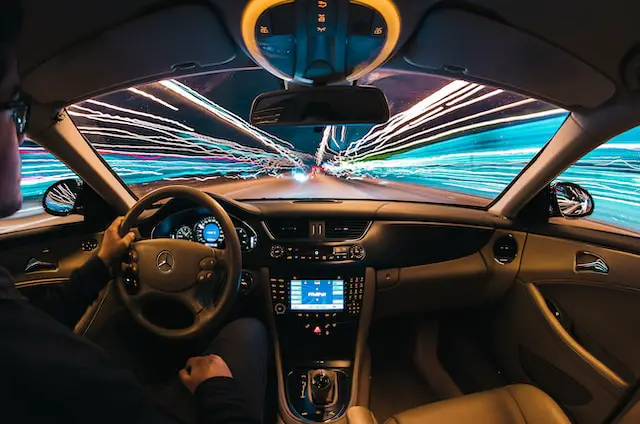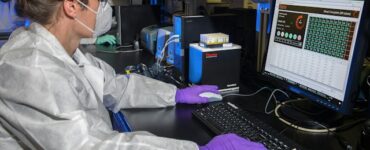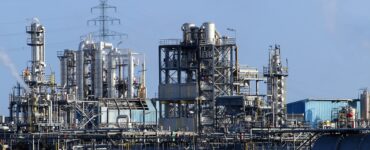The transportation industry is on the cusp of a revolutionary transformation driven by technological advancements and the need for more efficient sustainable and convenient modes of transportation. This article dives into the future of transportation exploring innovative concepts such as autonomous vehicles and hyperloop systems that have the potential to redefine the way we move.
Autonomous Vehicles: Shaping the Road Ahead
Autonomous vehicles also known as self-driving cars are set to disrupt the traditional automotive industry and revolutionize transportation as we know it. These vehicles are equipped with advanced sensors artificial intelligence and machine learning capabilities enabling them to navigate and operate without human intervention. The development and adoption of autonomous vehicles have the potential to enhance road safety reduce traffic congestion and improve energy efficiency.
Benefits of Autonomous Vehicles
- Enhanced Safety: Autonomous vehicles have the potential to significantly reduce human errors which are a leading cause of accidents on the road. With advanced sensor systems and real-time data analysis autonomous vehicles can react faster and make more informed decisions leading to safer transportation for passengers and pedestrians.
- Efficient Traffic Flow: Autonomous vehicles can communicate with each other and with traffic infrastructure allowing for optimized traffic management. Through coordinated movements and intelligent routing autonomous vehicles can reduce traffic congestion improve traffic flow and decrease travel times.
- Improved Accessibility: Autonomous vehicles have the potential to enhance mobility options for individuals who are unable to drive such as the elderly or disabled. These vehicles can provide convenient and independent transportation solutions promoting inclusivity and improving quality of life for a wider range of people.
- Environmental Sustainability: Autonomous vehicles can contribute to a greener future by optimizing fuel efficiency and reducing carbon emissions. With advanced algorithms and predictive capabilities autonomous vehicles can optimize routes minimize idle time and promote eco-friendly driving behaviors.
Hyperloop Systems: Redefining High-Speed Transportation
Another groundbreaking concept in the future of transportation is the hyperloop system. Conceived by Elon Musk the hyperloop is a high-speed transportation system that uses low-pressure tubes to transport pods or capsules at near-supersonic speeds. The pods travel within the tubes propelled by magnetic levitation and linear induction motors resulting in reduced friction and increased efficiency.
Advantages of Hyperloop Systems
- Unprecedented Speed: Hyperloop systems have the potential to reach speeds of up to 700 miles per hour (1100 kilometers per hour) surpassing the capabilities of traditional modes of transportation. This could significantly reduce travel times and enable rapid connections between cities and regions.
- Energy Efficiency: Hyperloop systems are designed to be highly energy-efficient. The low-pressure environment within the tubes minimizes air resistance allowing the pods to travel at high speeds with minimal energy consumption. Additionally the use of renewable energy sources can further enhance the sustainability of hyperloop systems.
- Reduced Environmental Impact: By relying on electricity as the primary power source and producing zero direct emissions hyperloop systems offer a more sustainable transportation option compared to fossil fuel-powered vehicles or airplanes. This can contribute to the reduction of carbon emissions and mitigate the environmental impact of transportation.
- Improved Connectivity: Hyperloop systems can connect cities and regions bridging geographical barriers and facilitating faster and more convenient travel. This enhanced connectivity has the potential to stimulate economic growth promote tourism and foster collaboration between different areas.
The Integration of Technologies: A Holistic Transportation Approach
The future of transportation is not limited to autonomous vehicles or hyperloop systems alone. It involves the integration of various technologies and concepts to create a holistic and interconnected transportation ecosystem. This includes advancements in electric vehicles ride-sharing and carpooling platforms smart traffic management systems and the utilization of data analytics to optimize transportation networks.
By combining these innovations we can create a seamless and efficient transportation system that prioritizes sustainability safety and convenience. It is through this integration that we can unlock the full potential of emerging technologies and pave the way for a future where transportation is not only smarter and faster but also more sustainable and accessible for all.
In conclusion the future of transportation is poised for transformative change. Autonomous vehicles have the potential to revolutionize road transportation enhancing safety efficiency and accessibility. Hyperloop systems on the other hand offer a paradigm shift in high-speed transportation enabling rapid connections between cities and regions. By integrating these technologies and adopting a holistic approach we can shape a transportation landscape that is more sustainable connected and efficient opening up new possibilities for mobility and shaping the way we travel in the years to come.

Hi, I’m Jodie! I’m a spain-Moroccan writer with a passion for imagination, adventures, magic and stories with heart.
Please don’t hesitate to contact me for any questions, suggestions, comments or feedback.

















Add comment